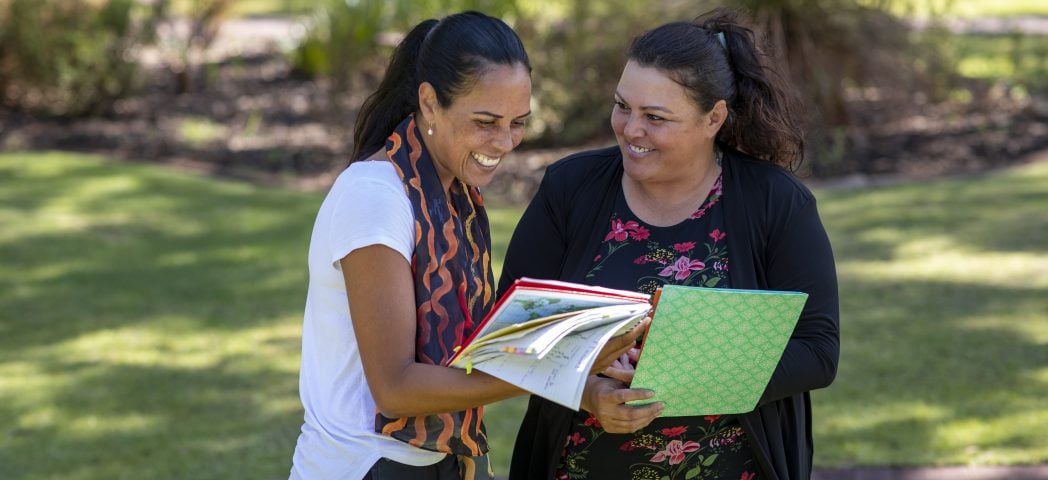- The Mental Health Review Tribunal and Carers
What’s the Mental Health Review Tribunal?
The Mental Health Review Tribunal (MHRT) is a court, but unlike your typical court, the Tribunal doesn’t have an official judge or a jury and it doesn’t decide on who is guilty.
When a doctor decides to provide involuntary mental health treatment in a hospital, this decision is regularly reviewed by the Mental Health Review Tribunal at a formal hearing. The Mental Health Review Tribunal also decides whether a person should receive involuntary treatment in the community. This is called a Community Treatment Order (CTO) and they are often used to make people take medication for their mental health condition at home. Instead of a judge, the Mental Health Review Tribunal has a lawyer, a psychiatrist and another qualified person like a social worker or nurse who makes decisions.
So the Tribunal is important to carers?
Yes! Whether or not a person receives involuntary treatment can make a huge difference. Sometimes it means that someone receives the support that they need which can be a huge relief for carers. But if it is given when it isn’t needed it could mean that the person loses choice and independence and this can be deeply upsetting for everyone, including family.
Carers often feel strongly about whether the person they care for needs involuntary treatment or not and want to have these views heard by the Tribunal. Carers might also want to be able to be present in a supportive capacity for their family member when they attend.
Carers know a lot about the person that they care for. This should be obvious – carers have often been close to the person for a very long time. Because of this, carers have insight into what the person needs, that is different to the insight of doctors, nurses or allied health professionals. It’s important that the Tribunal is able to take these insights into account when they make decisions.
What could be improved?
One of the most common complaints that we hear from carers who have had a person they care about in hospital was that no one told them about the Tribunal hearing. Or, we hear that they would have gone to the hearing if only they were given a little bit more warning than being told about it the day before or even a couple of hours before it happened.
According to the Mental Health Act, ‘Designated carers’ and ‘Principal care providers’ should be notified before the person they care for goes to a Tribunal Hearing. The hospital is responsible for notifying carers of Tribunal hearings but each hospital has different practices around how they notify carers. It’s clear that we need more consistency around how carers are notified about Tribunal hearings.
How did MHCN respond to this issue?
Last year MHCN held a Mental Health Review Tribunal event, where we invited the Ministry and Tribunal members to speak to carers about the Mental Health Review Tribunal. Carers were then invited to ask questions. The event provided an opportunity for carers to express some of their concerns and for the Ministry and Tribunal members to listen to carers. This event became the starting point for further discussion with the Ministry around how we could improve the way that mental health services communicate to carers about involuntary treatment and Mental Health Review Tribunal hearings.
What was the result?
We managed to negotiate funding for a co-design project where MHCN will work with carers to create resources for carers on the Mental Health Act and the Mental Health Tribunal. To start off this project we will be looking at how hospitals currently notify carers about Mental Health Tribunal Hearings. We will also be looking into what resources, if any, currently exist that provide information to carers on the Mental Health Act, involuntary treatment or the Mental Health Review Tribunal. We will use this information to design and publish new resources for carers. We hope that this process helps everyone, including mental health services, to better understand what carers need around notification for Tribunal hearings.
2. The Productivity Commission – A “warts and all” tale of advocacy.
The Productivity Commission Inquiry into Mental Health is a perfect example of an Inquiry that helped to bring about some change – but frustratingly not all the change that MHCN would have liked!
What is the Productivity Commission and why does it relate to mental health carers?
The Productivity Commission conducts research and advises the Federal Government on economic, social and environmental issues. As the name suggests, the Productivity Commission focuses on how these issues impact Australia’s productivity. In other words, it is very focused on dollars, costs and benefits. So, when the Productivity Commission was tasked with inquiring into mental health, it was told to focus on questions like; what are the costs of mental illness, what are the costs of mental health supports and how does spending money on mental health supports reduce the costs of mental illness?
How did MHCN respond?
MHCN ran a consultation workshop with carers who told us that mental health conditions and mental health caring comes with many costs. They told us that caring for family members living with a mental health condition saves the economy billions. They told us about research that showed that if the government paid services to provide the same care that family members provide to people with a mental health condition, it would cost billions of dollars. Yet carers don’t get paid; in fact carers gave up work and lost superannuation to provide that care.
MHCN and the carers at the consultation spoke about some of the solutions. We wanted:
- Carer supports like mental health carer respite to be refunded by the Commonwealth Government. We wanted funding specifically allocated to specialised supports for mental health carers rather than general carer services.
- The eligibility criteria for Centrelink payments for carers to be changed so that carers of people with psychosocial disability could access these payments more easily. In particular, we wanted the assessment tool to be changed so that they were suited to assessing mental health conditions. We also wanted more leniency for carers who wanted to participate in part time work or education, without losing their carer payments.
Based on our consultation and research we wrote a Submission to the Productivity Commission. The Commission asked us to attend a hearing in Sydney where we spoke about the value of services for carers. We then wrote a second submission to the Productivity Commission providing comments on their draft report. We then met with the Productivity Commission a second time to provide further feedback on the section on carers.
What were the results?
The Productivity Commission cited MHCN in the final report. The report made several important recommendations for carers including that:
- Separate carer and consumer national peaks should be funded by the Commonwealth government.
- Psychologists should be able to provide sessions to carers and family members through Medicare.
- The eligibility criteria for carer payments should be changed so that they are more accessible.
- States should be responsible for providing mental health carer services.
The report also recommended significant reform to governance structures that would build a more cohesive and coordinated mental health system.
Since the report was released, we have had some successes for carers, in particular carers and families can now access psychology sessions through Medicare. However, a national carer peak body has not been funded yet, nor have we seen substantial changes to the eligibility criteria for carer payments as we might like. We are hoping to see more of these reforms be implemented in the near future.
The National Government also delivered big spending for mental health in the 2021-2022 budget. However, we are yet to see the comprehensive reforms suggested by the Productivity Commission fully implemented by the Government.
What is the takeaway message?
Advocacy isn’t always easy or straight forward. Sometimes there are big bumps along the way, sometimes you don’t achieve exactly what you want or you have less impact than what you expect. But perseverance is really important. We believe that contributing in some small way to slow incremental change can eventually help to change outcomes for carers and for people with a mental illness.
You can read more about how we advocate for carers, what our policy and advocacy team do, and read our submissions in our ‘how we advocate’ section on our website.



